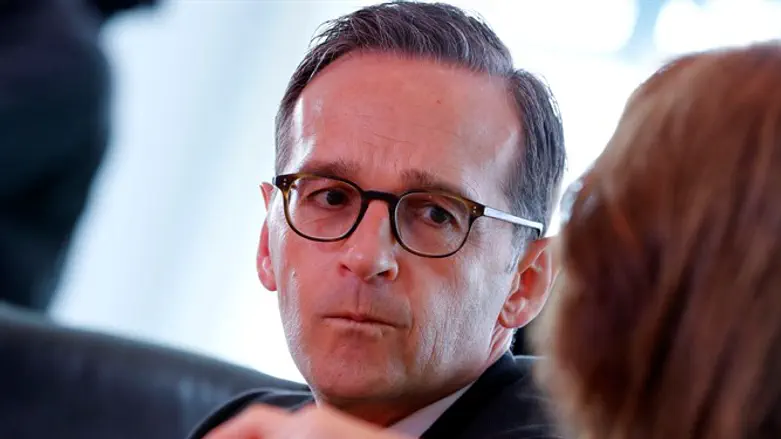
Germany on Wednesday rejected claims that it violated a supposed decades-old agreement to let Israel run unopposed for a seat on the United Nations Security Council, AFP reported.
Pro-Israel activists in the United States have accused Berlin of not honoring an agreement struck almost 20 years ago when the Jewish state joined the Western European and Others (WEOG) regional group at the UN.
The deal purportedly included a promise to let Israel run uncontested for one of the non-permanent seats reserved for the regional group, but Germany denies that such a pledge was made.
"It's always been the case in the past that there are different candidacies," German Foreign Minister Heiko Maas told journalists in New York where he was lobbying for Berlin's candidacy.
"We do not run against anyone. We are running for a seat at the Security Council," he added, according to AFP.
Israel, Germany and Belgium are vying for the two seats reserved for the regional group in elections at the General Assembly on June 8.
In all, five seats are up for grabs but three of those are reserved for Africa, Latin America and the Asia-Pacific region, which traditionally have rallied around one candidate from their group.
The five new members will serve a two-year term starting in 2019.
Maas pointed out that Germany seeks a non-permanent seat every eight years "so this is an issue that one can deal with in a very normal way."
If elected, Germany would be making its sixth stint at the council.
The New York Post ran an op-ed accusing Germany of a "shameless power play against Israel."
U.S. President Donald Trump's designated ambassador to Berlin, Richard Grenell, also weighed in, demanding on Twitter that "Europe keep its word."
To win election to the council, candidate-countries must win a two-thirds majority in the 193-nation assembly. Germany last served on the council in 2011-2012.
Israel had been quietly working behind the scenes for more than a year in an effort to win a seat on the 15-nation council in the upcoming elections in June, but a report earlier this month indicated that it had decided to abandon the quest as it did not manage to muster up the necessary majority.
Israel is one of the 66 world nations which never held a seat on the body. Beating Germany and Belgium for the coveted position would be a major achievement for Prime Minister Binyamin Netanyahu, who has long contended that rebuilding relationships with African and Asian nations, one of his diplomatic successes, would transfer into UN votes.
"My goal is to erode the great blocking majority of 54 African countries that is the basis of the automatic majority against Israel in the UN and other international bodies," Netanyahu said in June before he set off on a major state visit to Africa.
Maas said on Wednesday that Germany -- already among the top UN financial contributors -- stands ready to take on additional responsibilities as a council member.
"We live in times where we need more United Nations and not less as some believe," he said, according to AFP.